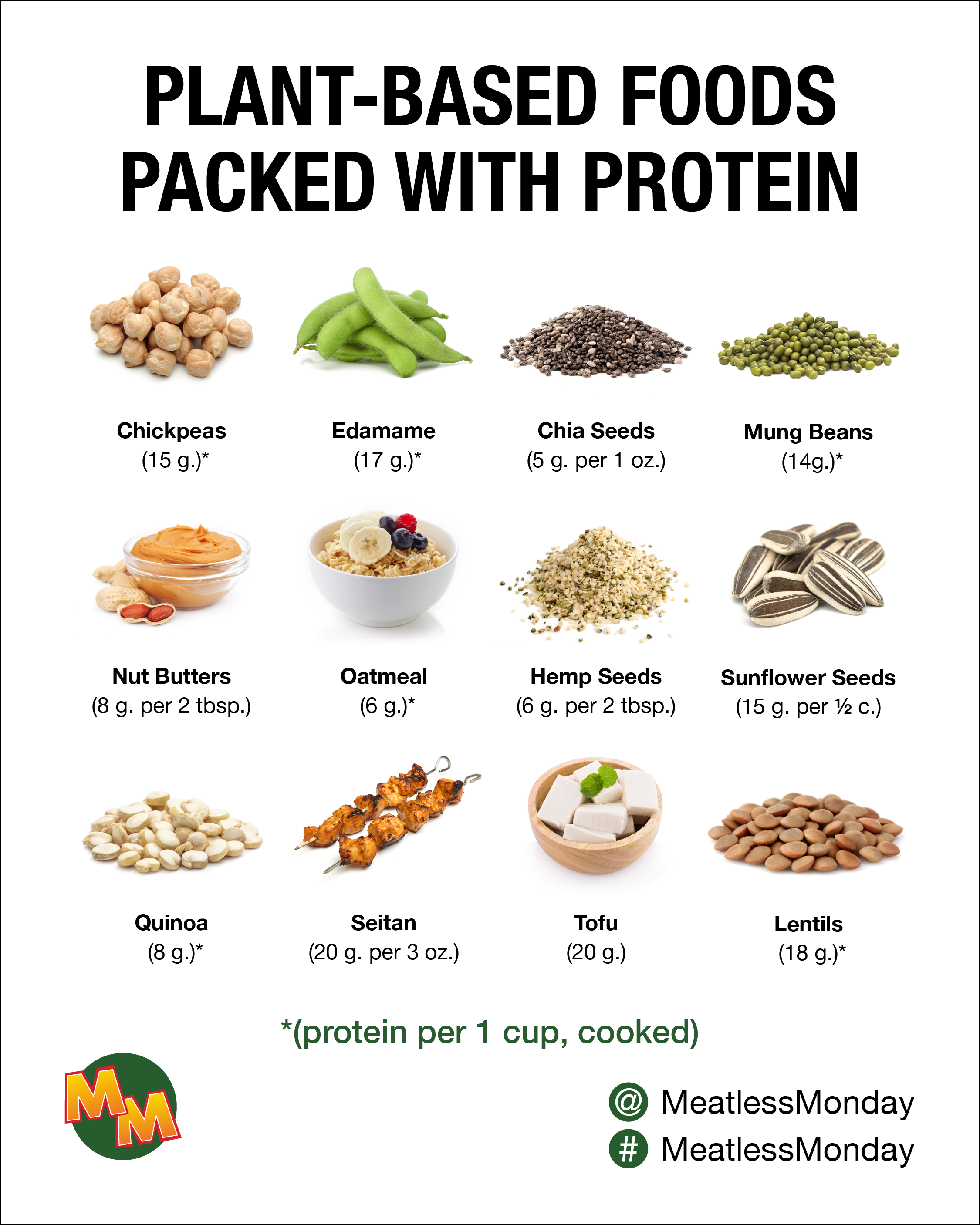Are These BBQ Sauces Really Plant-Based? We Investigated
Are These BBQ Sauces Really Plant-Based? We Investigated
Blog Article
Everything About Healthy And Balanced Food: Benefits of Embracing Plant Based Options
The conversation bordering plant-based diets has gotten substantial attention over the last few years. Many individuals are exploring the prospective health advantages, nutritional advantages, and ecological impacts connected with these dietary choices. As people end up being a lot more conscious of their food's impact on well-being and sustainability, questions arise concerning the usefulness of taking on such a way of life. What details modifications can one anticipate, and exactly how might these selections improve not only individual wellness however also the world's future?
Comprehending Plant-Based Diets
Although many individuals connect plant-based diet plans generally with vegetarianism or veganism, these diets can incorporate a large range of consuming patterns that prioritize entire, minimally processed plant foods. Such diet plans typically include fruits, vegetables, entire grains, seeds, vegetables, and nuts, while restricting or eliminating pet products. This adaptability allows individuals to customize their nutritional selections according to dietary needs and personal choices. Some might embrace a largely plant-based diet while still sometimes consuming meat or dairy, frequently referred to as a flexitarian technique. The emphasis remains on including even more plant foods, which can lead to a diverse selection of meals and flavors. Understanding these numerous interpretations of plant-based consuming is essential for appreciating its availability and allure in modern food culture.
Wellness Advantages of Plant-Based Foods
The health and wellness advantages of plant-based foods are substantial, offering a nutrient thickness benefit that sustains total well-being. Research study suggests that these foods can enhance heart wellness and play an essential duty in effective weight management. By incorporating more plant-based alternatives, individuals might boost their nutritional choices and promote lasting wellness.
Nutrient Density Benefit
Nutrient density plays a necessary duty in the health advantages of plant-based foods, making them an engaging option for those seeking a balanced diet plan. Plant-based foods, such as fruits, vegetables, legumes, nuts, and entire grains, are usually abundant in essential vitamins, minerals, and anti-oxidants while being lower in calories. This high nutrient density permits people to take in fewer calories while still meeting their dietary demands. Furthermore, these foods are packed with dietary fiber, promoting digestive wellness and assisting in weight administration. By including nutrient-dense plant-based choices, consumers can boost their total wellness, support their body immune systems, and minimize the risk of persistent conditions. Eventually, the nutrient density of plant-based foods emphasizes their relevance in a health-conscious way of life.
Heart Health Improvement

Weight Administration Support
In enhancement to advertising heart wellness, a plant-based diet plan can considerably assist in weight administration. This dietary technique highlights entire foods such as fruits, vegetables, beans, nuts, and whole grains, which are typically reduced in calories and greater in fiber compared to animal-based products. The high fiber content aids raise satiety, lowering general calorie intake. Plant-based diet plans are typically abundant in important nutrients while reduced in harmful fats, making it easier to keep a healthy weight. Research study indicates that individuals that embrace a plant-based way of living often tend to have reduced body mass indexes (BMIs) and experience more successful weight reduction compared to those who take in meat-heavy diet regimens. As a result, welcoming plant-based choices is a critical option for effective weight administration
Nutritional Value of Plant-Based Ingredients
Plant-based components are rich in vital nutrients, providing a diverse array of vitamins, minerals, and antioxidants that add to overall health. A contrast of protein sources discloses that while animal products are commonly watched as remarkable, several plant-based alternatives provide ample healthy protein and other advantageous substances. Understanding the nutritional worth of these components can aid individuals make notified nutritional choices.
Vital Nutrients in Plants
Nutrient-rich ingredients found in plants offer a varied selection of necessary vitamins and minerals that contribute significantly to overall health. These ingredients are abundant in vitamins A, C, and K, which support immune function, vision, and blood clot, specifically. In addition, plants offer crucial review minerals such as potassium, calcium, and magnesium, critical for heart health, muscular tissue feature, and bone toughness. The visibility of fiber in plant-based foods aids food digestion and promotes a healthy and balanced gut microbiome. Antioxidants, found generously in vegetables and fruits, assistance battle oxidative anxiety and reduce inflammation. In addition, numerous plant foods are reduced in calories yet high in nutrients, making them an exceptional selection for those looking for to keep a healthy weight while ensuring excellent nutrient consumption.
Contrasting Healthy Protein Resources
Healthy protein sources vary considerably in their nutritional profiles, with plant-based ingredients offering one-of-a-kind advantages. Unlike animal healthy proteins, which usually have saturated fats and cholesterol, plant healthy proteins often tend to be reduced in these unhealthy components. Legumes, nuts, seeds, and whole grains are abundant in important amino acids, fiber, vitamins, and minerals. Lentils give high healthy protein content along with substantial iron and folate, while quinoa is a total healthy protein, supplying all 9 necessary amino acids. Furthermore, plant-based healthy proteins are commonly accompanied by antioxidants and phytochemicals that sustain overall wellness. The shift to plant-based protein sources not just enhances dietary intake but also lines up with lasting nutritional practices, lowering environmental impact and promoting lasting wellness advantages.
Ecological Effect of Plant-Based Consuming
As awareness of climate adjustment grows, lots of people are exploring sustainable dietary choices that can substantially lessen their ecological footprint. Plant-based consuming has actually emerged as a substantial contributor to lowering greenhouse gas emissions, which are mostly linked with livestock production. The growing of fruits, grains, beans, and veggies typically requires fewer resources, such as water and land, contrasted to pet farming. Additionally, plant-based diet plans can cause lowered deforestation, as less land is needed for grazing animals or expanding pet feed. By moving in the direction of plant-based alternatives, consumers can sustain biodiversity and advertise healthier environments. Generally, welcoming plant-based eating not just advantages individual wellness yet likewise stands for an important step toward environmental sustainability and conservation initiatives.
Conquering Common Misconceptions
While several people recognize the benefits of a plant-based diet, several false impressions often deter them from completely embracing this lifestyle. A common idea is that plant-based diets do not have adequate healthy protein; however, numerous plant sources, such as beans, nuts, and tofu, provide enough healthy protein. Furthermore, some presume that this diet is expensive, when as a matter of fact, staples like beans, rice, and seasonal veggies can be rather economical. One more false impression is that plant-based consuming is overly restrictive, whereas it in fact uses a diverse array of flavors and foods. Several fret that a plant-based diet regimen may lead to deficiencies, yet with correct planning, people can obtain all necessary nutrients, consisting of vitamins and minerals, while enjoying a large variety of delicious dishes.
Tips for Transitioning to a Plant-Based Way of living
Making the change to a plant-based way of life can be an enriching experience, though it usually calls for some assistance to browse the first adjustments. Individuals are urged to start gradually, incorporating even more fruits, vegetables, vegetables, and entire grains right i loved this into their dishes while minimizing meat and dairy usage. Dish preparation is important; preparing a regular food selection can help relieve the modification and stop final unhealthy choices. Checking out brand-new recipes and cooking techniques can additionally preserve and improve the experience enjoyment concerning plant-based eating. In addition, signing up with assistance teams or communities can supply motivation and share important tips. Finally, staying notified about nourishment assurances well balanced meals, protecting against shortages while fostering a healthy and balanced, rewarding plant-based lifestyle.
Delicious Plant-Based Dish Concepts
Checking out scrumptious plant-based meal concepts can motivate individuals to accept a much more nutritious diet plan. One popular option is a passionate quinoa salad, including cherry tomatoes, cucumber, and a tangy lemon-tahini clothing. An additional favorite is a full-flavored lentil stew, packed with carrots, celery, and aromatic natural herbs, excellent for a reassuring dinner. For breakfast, overnight oats made with almond milk, chia seeds, and covered with fresh berries provide a nourishing start to the day. Additionally, a dynamic vegetable stir-fry with tofu and a range of vivid veggies can be a fast yet pleasing dish. Finally, creamy avocado toast on whole-grain bread, sprayed with seasonings and seeds, supplies a simple yet tasty treat. These meals display the selection and richness of plant-based consuming.

Regularly Asked Questions
Can a Plant-Based Diet Supply Sufficient Healthy Protein?
The inquiry of whether a plant-based diet can offer enough protein is usual. Various resources, consisting of legumes, nuts, seeds, and entire grains, can fulfill healthy protein needs effectively, sustaining a healthy and well balanced diet plan for people.
Are Plant-Based Diet Regimens Ideal for Kid?
The viability of plant-based diets for youngsters depends on cautious planning. Appropriate nutrients should be assured, including proteins, minerals, and vitamins. With proper assistance, such diet regimens can support healthy and balanced development and development in youngsters.
Exactly how Do I Eat Out on a Plant-Based Diet?
Eating out on a plant-based diet plan entails seeking dining establishments with diverse menus, requesting alterations, and exploring vegan-friendly choices. Preparation ahead and interacting nutritional preferences can boost the dining experience while maintaining dietary selections.
What Are Typical Irritants in Plant-Based Foods?
Typical irritants in plant-based foods consist of soy, gluten, nuts, and seeds - Plant Based Beef. Individuals adhering to a plant-based diet must recognize these irritants and read tags carefully to prevent negative responses and guarantee risk-free consumption
Can Plant-Based Diets Assist With Weight Loss?
Research indicates that adopting a plant-based diet regimen may help with weight-loss because of its commonly reduced calorie thickness and higher fiber material. This mix can improve satiety, aiding people handle their caloric intake efficiently. Lots of people connect plant-based diets generally with vegetarianism or veganism, these diet plans can include a large variety of eating patterns that prioritize whole, minimally processed plant foods. Nutrient thickness plays an essential duty in the wellness benefits of plant-based foods, making them a compelling selection for those looking for a balanced diet. Plant-based diets have actually been revealed to substantially enhance heart health and wellness, as they typically consist of aspects that support cardio feature. In addition to advertising heart wellness, a plant-based diet regimen why not try these out can significantly aid in weight management. An usual belief is that plant-based diets do not have enough protein; however, countless plant resources, such as legumes, nuts, and tofu, give sufficient protein.
Report this page